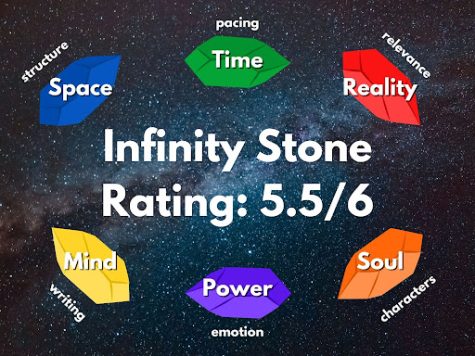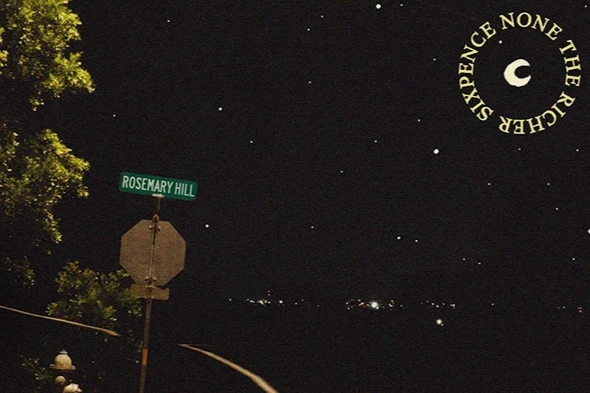
Welcome back to another Red Room Review. Today, we’re giving you a review of the film that actually inspired the title of our column, so buckle up, it’s about to be good. In the movie “Black Widow,” released July 4, Marvel fans dive back into the past of Natasha Romanoff, the titular Black widow as she grapples with her time before becoming an Avenger, and the dangerous ways in which it’s catching up to her. The release of this show also allows for the introduction of her sister, Yelena Belova, into the Marvel universe. Belova is expected to appear in the upcoming television series “Hawkeye.”
The idea for the Black Widow movie predated even Scarlett Johansson’s appearance in Iron Man 2,” which was Romanoff’s foray into the Marvel Cinematic Universe (MCU). It was in development even before the first “Iron Man” was released. Lionsgate originally began development of the movie in 2004. However, Marvel attained the rights to Black Widow in 2006, and promptly delayed production and release of the film for 15 years. Thanks guys.
Twenty two movies and 13 years later, Black Widow was finally given her chance on the big screen. Though she had originally appeared in countless other films, including each Avengers movie to date, she had never been given the chance to star in her own stand-alone. Watching this movie on the big screen was not only long overdue, but a chance for Romanoff to get the spotlight she deserved.
We have a lot to say about Black Widow’s delay. As two women who love Marvel, we were constantly frustrated by Marvel’s depiction of women in general. Romanoff was powerful, no doubt, but she was also always in tight clothes, with perfect hair and makeup and always had some sexy attitude or remark. Not to mention the thousands of unnecessary shots we saw thanks to our favorite male directors. Don’t mistake us, there is absolutely nothing wrong with a woman being so comfortable with her sexuality, but Romanoff was consistently subjected to the male gaze instead of being celebrated for her qualities, and she was rarely depicted in another light, especially in her earlier movies.
So, this movie was a long time coming. Seeing Romanoff as a truly three dimensional character, well it’s enough to make a girl cry. “Black Widow” offers a chance for viewers to not only see her in a movie of her own, but get the chance to learn about Romanoff’s past, a mystery that has been excluded in past Marvel movies, where she was given only side character roles and little background information, with only the smallest bit of information being revealed about her.
Romanoff herself, in a quick history, was sent to the Red Room as a child. The Red Room is an intense, brutal training center that recruited, and oftentimes kidnapped, young girls to turn them into highly specialized spies, known as Black Widows. We must insert some criticism of the overt demonization of the Soviet Union and the glorification of America. The depiction of the Red Room as a uniquely cruel Cold War era Soviet entity is a little over the top. Still, we were glad to see that the creator is a truly sexist villain who quote, “can finally come out of the shadows using the only natural resource that the world has too much of. Girls.” Kindly leave, Dreykov.
When making our reviews, we decided to rate each one based on it’s correspondence to the Infinity Stones. In terms of the soul stone, the characters absolutely blew us away. Introduced to the MCU, Romanoffs’s adoptive family was the definition of a trainwreck. After years of separation, Romanoff was reunited with her adoptive sister Yelena Belova due to the discovery of a Black Widow antidote, which releases a Black Widow from the neurological mind control that was used on Belova’s generation of Widows, but not Romanoff’s (whose generation was simply subjected to acute psychological manipulation and torture).
The two assassins immediately began the process of attempting to kill each other, overcome with mistrust. Though this was possibly a bit of an overreaction, their relationship throughout the rest of the movie was iconic, their journey building back their relationship after all of the trauma they endured in the Red Room.

While some thought Belova’s involvement in the film overshadowed Romanoff (which we would be rather upset about, given she has been waiting for her own movie for ages), her inclusion was necessary. Belova’s comedic lines and heartfelt relationship with her adoptive family brought the entire movie together. While she definitely stole some scenes, Romanoff was always given her space to shine, and shine she did. Plus, when it comes to well-written female characters— the rarity that they are— the more the merrier.
Two other new characters, Romanoff’s adoptive parents, Alexei Shostakov and Melina Vostokoff also made an appearance. Though the family first came together as an attempt to spy in the United States by posing as a regular American family, the roles they played could eventually be seen as some form of a reality. While they had their issues, including multiple attempts to kill each other— no big deal— the family came together throughout the film and it could not be denied that eventually this ragtag group was just that— a family. It’s safe to say that this movie has plenty of soul.
When looking at the power stone, emotions certainly run high. Riddled with betrayals, action, and plenty of complex plans, fans are left on the edge of their seats (we were at least). When watching, you are left with a constant loss of words. A rollercoaster of emotions, the movie is an amazing mix of comedy, drama and betrayal that left us absolutely stunned. Marvel again demonstrated its ability to move past a typical action film full of explosions and weapons. The characters were raw, and oftentimes vulnerable, something we very much appreciated.
Romanoff, particularly, was a thrill to watch. She is in constant struggle with her past, yet her training in the Red Room allows her to have such strong control of her emotions and those of others. Still, Johansson’s portrayal showed a lot of complexity within Romanoff’s character, particularly when she is faced with a direct victim of her past actions, no spoilers though.
Of course, none of this could be possible if the writing of this movie was nothing short of superb, the mind stone gaining a full point in our review. The movie managed to tackle complex family relationships, topple corrupt organizations and introduce amazing characters into the MCU, all while keeping the dialogue down to earth and realistic. While some people view the reality of the movie to be a bit of a stretch, with many of the stunts performed by Romanoff unrealistic for a regular human, what people tend to forget is that this is an action movie. The rules of physics do not always apply, especially for a highly-specialized trained assassin and Avenger. In terms of mind and reality, “Black Widow” hits the mark in terms of action, organization, and absolutely amazing female characters. What’s not to love?
For the space and time stones, which correspond to structure and pacing, we could complain that the movie was a little slow getting started, as it began with a very long flashback into Romanoff and Belova’s few years in Ohio, before they were both sent to the Red Room to become Black Widows. We felt this part could have been cut a little bit to make way for the main storyline, but it was still a valuable addition to the movie that we were happy to see.
Overall, we really couldn’t have hoped for a better Black Widow movie, and we’ve been dreaming about it for a long, long time. The movie had exceptionally written characters and exciting plot, and just enough emotion to tie it all together. We’ll be copying Yelena and Natasha’s braids and buying their earrings for years to come.





![There are more than 20 open cardio machines at Crunch Fitness. I enjoyed the spacious environment at Crunch, a sentiment that was shared by sophomore Sanjana Daggubati. “[Going to] Crunch Fitness was the right decision because [it] feels more professional. Crunch’s workers are laid back, but not to the point where they don't care,” Daggubati said.](https://pwestpathfinder.com/wp-content/uploads/2025/09/IMG_5242-1-1200x900.jpg)

![Various empty Kit Kat wrappers crowd the desk, surrounded by scoring sheets. While production of Kit Kat flavors in the U.S. is limited, Nestlé, the owner of Kit Kat, manufactures hundreds of unique flavors in Japan, including the flavors ocean salt and passion fruit. “I thought there [were] some interesting flavors, and a lot of them were really unexpected,” senior Elle Levesque said.](https://pwestpathfinder.com/wp-content/uploads/2025/09/image-2.png)


![Pantone’s selection of the 2025 Color of the Year is revealed: Mocha Mousse. Ceramics teacher Ashley Drissell enjoys this year’s selection. “Maybe it’s the name but [Mocha Mousse] reminds me of chocolate and coffee. It makes me hungry. It’s very rich and decadent,” Drissell said.](https://pwestpathfinder.com/wp-content/uploads/2025/02/DSC_0015-1200x800.jpg)



![Focused on providing exceptional service, sophomore Darsh Mahapatra carefully cleans the door of a customer’s car. Mahapatra has always believed his customers deserve nothing less than the best. “[If] they’re trusting us with their car and our service, then I am convinced that they deserve our 100 percent effort and beyond,” Mahapatra said.](https://pwestpathfinder.com/wp-content/uploads/2025/10/DSC_0018-1200x800.jpg)
![Sophomore Aleix Pi de Cabanyes Navarro (left) finishes up a soccer game while junior Ava Muench (right) warms up for cross country practice. The two came to Parkway West High School as exchange students for the 2025-2026 school year. “The goal for the [exchange] program is to provide opportunities for both Parkway students and our international exchange students to learn about other cultures, build connections and become confident, capable, curious and caring — Parkway’s Four C’s — in the process,” Exchange Program Lead Lauren Farrelly said.](https://pwestpathfinder.com/wp-content/uploads/2025/10/Feature-Photo-1200x800.png)
![Leaning on the podium, superintendent Melissa Schneider speaks to Parkway journalism students during a press conference. Schneider joined Parkway in July after working in the Thompson School District in Colorado. “My plan [to bond with students] is to get things on my calendar as much as possible. For example, being in [classes] is very special to me. I am trying to be opportunistic [meeting] kids [and] being in [the school] buildings. I have all the sports schedules and the fine arts schedules on my calendar, so that when I'm available, I can get to them,” Schneider said.](https://pwestpathfinder.com/wp-content/uploads/2025/09/IMG_5425-1200x943.jpeg)
![Gazing across the stage, sophomore Alexis Monteleone performs in the school theater. The Monteleone family’s band “Monte and the Machine” has been releasing music since 2012, but Alexis started her own solo career in 2024 with the release of her first single, Crying Skies. “My whole family is very musical, [and I especially] love writing [songs with them],” Monteleone said.](https://pwestpathfinder.com/wp-content/uploads/2025/09/DSC7463-1200x798.jpg)

![Leaping through the air, senior Tyler Watts celebrates his first goal of the season, which put the Longhorns up 1-0 against the Lafayette Lancers. Watts decided to play soccer for West for his last year of high school and secured a spot on the varsity roster. “[Playing soccer for West] is something I had always dreamed of, but hadn’t really had a good opportunity to do until now. It’s [really] fun being out [on the field], and I’m glad I decided to join the team. It’s just all about having fun with the boys and enjoying what time we have left together,” Watts said.](https://pwestpathfinder.com/wp-content/uploads/2025/09/DSC_1951-1200x855.jpg)

![Junior Fiona Dye lifts weights in Strength and Conditioning. Now that the Trump administration has instituted policies such as AI deregulation, tariffs and university funding freezes, women may have to work twice as hard to get half as far. "[Trump] wants America to be more divided; he wants to inspire hatred in people,” feminist club member and junior Clara Lazarini said.](https://pwestpathfinder.com/wp-content/uploads/2025/05/Flag.png)
![As the Trump administration cracks down on immigration, it scapegoats many immigrants for the United States’ plights, precipitating a possible genocide. Sophomore Annabella Whiteley moved from the United Kingdom when she was eight. “It’s pretty scary because I’m on a visa. When my visa expires next year, I’m not sure what’s going to happen, especially with [immigration] policies up in the air, so it is a concern for my family,” Whiteley said.](https://pwestpathfinder.com/wp-content/uploads/2025/05/DSC_0077-7copy.jpg)
![Shifting global trade, President Donald Trump’s tariffs are raising concerns about economic stability for the U.S. and other countries alike. “[The tariffs are] going to pose a distinct challenge to the U.S. economy and a challenge to the global economy on the whole because it's going to greatly upset who trades with who and where resources and products are going to come from,” social studies teacher Melvin Trotier said.](https://pwestpathfinder.com/wp-content/uploads/2025/05/MDB_3456-1200x800.jpg)

